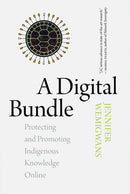Description
This book adds to the growing collection of works on Indigenous epistemologies and focuses on Indigenous Knowledge online, its socio-cultural effects, how ICTs affect relationships among Indigenous Peoples and the flow of power between Indigenous Peoples and the state. Wemigwans makes the distinction between the role of an Elder or Traditional Knowledge Keeper and acquired personal knowledge so as not to assume the role of Knowledge Keeper or disrespect Indigenous protocols held by Elders who carry the Indigenous Knowledge of their communities. Through interviews, the author concludes that Indigenous Knowledge online is instrumental to the success of Indigenous community resurgence and the application of this knowledge in all fields that speak back to dominant colonial systems of knowledge. In contributing to Indigenous Knowledge and education in a networked world, this book not only explores Indigenous ethics, copyright, and nation-building, but also the internet as contributing to cultural movements, Indigenous resurgence and First Nations, Metis and Inuit visibility on the Web, and decentring the colonizer. Through Indigenous theorizing based on Biskaabiiyang, Naakgonige, Aanjigone and Debwewin and Indigenous interview techniques, Wemigwans analyses her research. This work also discusses knowledge production and protection using examples of how FourDirectionsTeachings.com, constructed within Indigenous protocols, provides a legitimate source of Indigenous Knowledge online. This book is a must read if you are interested in a new cultural form that propels new social relations offline through Indigenous Knowledge online, inspires knowledge and contributes to Indigenous resurgence.


